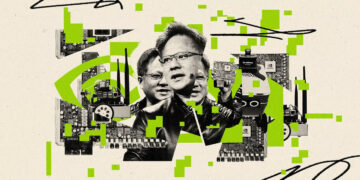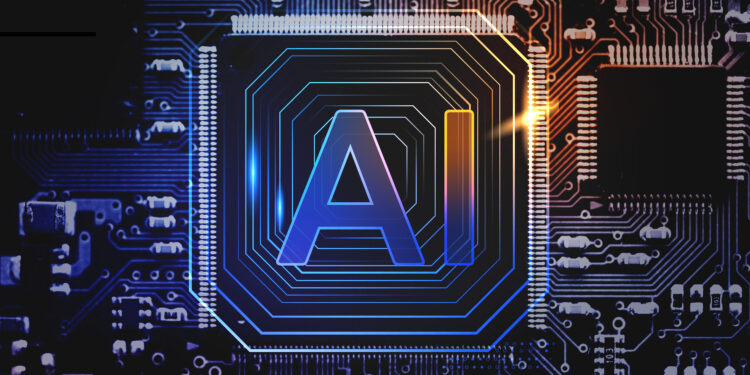The integration of artificial intelligence (AI) into various technologies has been nothing short of revolutionary. From smartphones to home appliances, AI has transformed the way we interact with and perceive technology. One area where AI’s impact is increasingly being felt is in the realm of processors, particularly in personal computers (PCs). As we delve into 2024, there’s growing anticipation around whether AI-enabled processors will ignite a PC supercycle, driving unprecedented growth and innovation in the industry.
Introduction to AI-Enabled Processors
AI-enabled processors, also known as AI chips or neural processing units (NPUs), are specialized hardware designed to accelerate AI tasks such as machine learning and deep learning. Unlike traditional CPUs, which are more general-purpose in nature, AI processors are optimized specifically for handling the complex calculations and algorithms involved in AI workloads.
Understanding the PC Supercycle Phenomenon
Before delving into the potential impact of AI-enabled processors, it’s essential to understand the concept of a PC supercycle. A supercycle refers to a period of unusually strong demand for a particular product or technology, often driven by a combination of technological advancements, consumer trends, and economic factors. In the context of PCs, a supercycle typically involves a surge in sales and upgrades across both consumer and enterprise markets.
Impact of AI-Enabled Processors on PC Industry
Enhanced Performance and Efficiency
AI-enabled processors have the potential to revolutionize the performance and efficiency of PCs. By offloading AI-related tasks to dedicated hardware, these processors can significantly accelerate tasks such as image and speech recognition, natural language processing, and predictive analytics. This translates to faster and more responsive systems, allowing users to accomplish more in less time.
Integration of AI Features
Beyond performance enhancements, AI-enabled processors enable the integration of AI features directly into PC software and applications. This opens up a myriad of possibilities, from intelligent voice assistants and adaptive user interfaces to personalized recommendations and predictive maintenance. As AI continues to permeate every aspect of our digital lives, PC manufacturers are leveraging AI-enabled processors to deliver more intelligent and intuitive user experiences.
Factors Driving the PC Supercycle
Demand for Remote Work Solutions
The shift towards remote work, accelerated by the COVID-19 pandemic, has fueled demand for powerful and versatile PCs. As organizations embrace hybrid work models and individuals seek greater flexibility in their work setups, there’s a growing need for PCs that can handle the demands of remote collaboration, video conferencing, and productivity software.
Growth in Gaming and Entertainment
The gaming and entertainment industries continue to be major drivers of PC sales, with demand for high-performance systems showing no signs of slowing down. AI-enabled processors offer gamers and content creators the promise of enhanced graphics rendering, real-time ray tracing, and immersive experiences that push the boundaries of what’s possible.
Innovation in PC Design and Functionality
In addition to performance improvements, AI-enabled processors are driving innovation in PC design and functionality. From sleek, ultraportable laptops to modular desktops with customizable components, manufacturers are leveraging AI to create devices that are not only more powerful but also more versatile and user-friendly.
Compatibility Issues
One potential challenge is compatibility issues between AI-enabled hardware and existing software and peripherals. Ensuring seamless integration and interoperability will be crucial to realizing the full potential of AI-enabled processors.
Privacy and Security Concerns
The increasing use of AI in PCs raises concerns around data privacy and security. As AI algorithms become more sophisticated and data-hungry, there’s a risk of sensitive information being compromised or misused. Addressing these concerns will be essential to building trust and confidence among consumers and businesses.
Potential Market Growth and Opportunities
Despite these challenges, the outlook for AI-enabled processors in the PC market is overwhelmingly positive. Analysts predict robust growth in sales of AI-enabled PCs, driven by factors such as increasing demand for AI-driven applications, the proliferation of IoT devices, and advancements in cloud computing infrastructure.
The Role of AI in Shaping Future PC Trends
AI is poised to play an even greater role in shaping the future of the PC industry. From intelligent automation and predictive analytics to augmented reality and virtual assistants, AI-driven innovations will continue to drive growth, spur innovation, and redefine the possibilities of what PCs can achieve.
Conclusion
The convergence of AI and PC technology holds immense promise for sparking a supercycle in 2024 and beyond. By harnessing the power of AI-enabled processors, PC manufacturers have the opportunity to deliver unparalleled performance, functionality, and user experiences. While challenges remain, the potential for transformative change is undeniable, making the prospect of a PC supercycle all the more tantalizing.







































